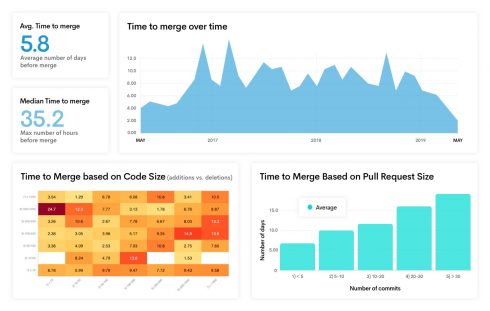
Lack of visibility into the entire SDLC is a problem, causing about 70 percent of large IT transformation projects to fail, according to source{d}. To aid enterprises through their digital transformation, source{d} launched source{d} Enterprise Edition (EE), which gives IT executives visibility into codebases, IT teams and processes, and offers the ability to add multiple data sources.
“Today, IT executives don’t have the right tools to measure their technical debt, DevOps adoption and overall engineering effectiveness. We’re providing the insights they need to not only measure progress and inform strategic decisions but also accelerate time to market,” said Eiso Kant, CEO of source{d}.
Source{d} EE is tailored to providing analysis for large companies that have complex SDLC data and engineering organizations by supporting distributed processing across multiple nodes and cross -oining of data sources, according to the company.
It also comes fully integrated with Apache Superset, an analytics and business intelligence web application that allows users to connect with business intelligence tools such as Tableau, PowerBI and Looker.
Victor Coisne, VP of marketing at source{d}, told SD Times that centralizing oversight of the whole SDLC is a new phenomenon.
“Building a data lake for the SDLC is both complex and time-consuming as SDLC data sources are usually spread across the entire organization in silos whether that means different entities, teams or systems,” Coisne said.
Source{d} also offers customizability by enabling users to build their own dashboards with any software development metrics and edit them in a SQL editor.
Open-source cloud application platform Cloud Foundry used source{d} to analyze its codebase, revealing the platform had significant “breadth and depth with high release velocity,” according to a post.
“Our project is large and complicated with a unique paired model and dependencies across a variety of other open-source projects. With source{d}, we were easily provided with visualizations of the changes in code, the velocity of the code, who was contributing what and how,” Devin Davis, VP of marketing at Cloud Foundry Foundation told SD Times. “In other words, easily consumable and actionable insights.”






